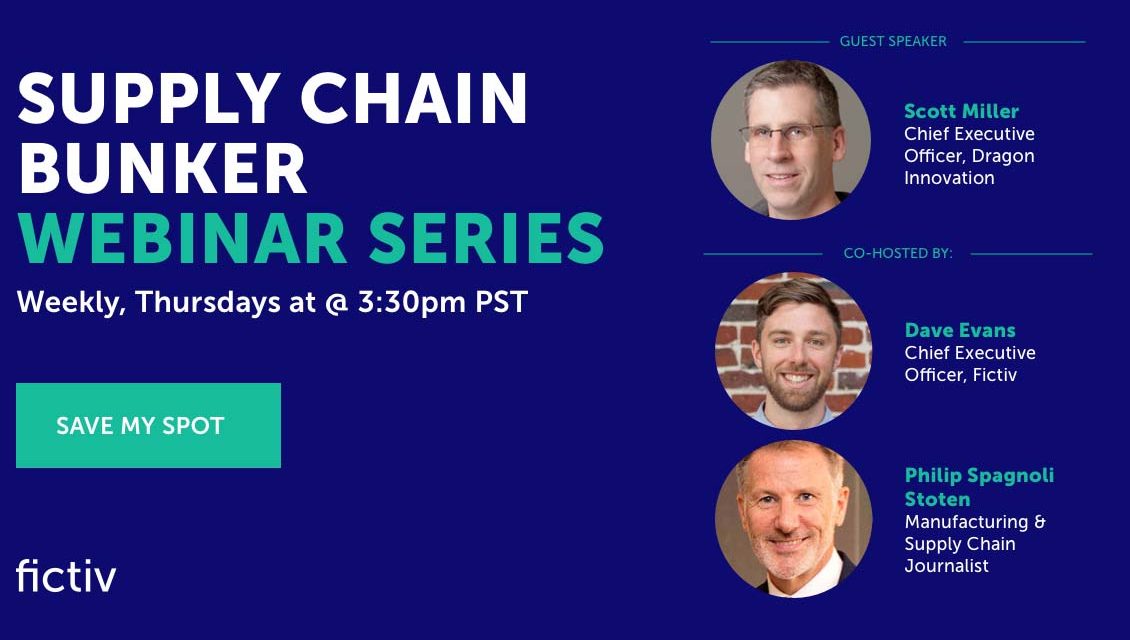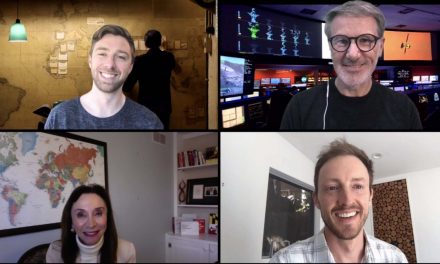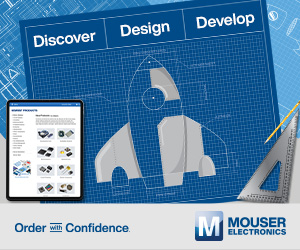The Supply Chain Bunker Debrief (Episode #1) – Covid-19 Response

By Dave Evans, Fictiv CEO and Philip Stoten, Writer and Founder of SCOOP
When we chatted just over a week ago about the need for information, insight and leadership at this very difficult time we had no idea how many people were feeling that same need to share stories, experiences and ideas. We felt strongly that in this time of need, we should all work together , and that people needed a forum for communication to share best practices.
The Supply Chain Bunker was born, and within a day or two, plenty of emails and several calls, it became very real. By day three we had a landing page up and released the date and time of the first Bunker, which took place last Thursday and will take place every Thursday at 3:30pm Pacific and 6:30pm Eastern until it is no longer relevant.
The Supply Chain Bunker is fluid. It is a forum for conversation and insight, with guests from all around the world, and from every industry with one thing in common – they all have experience and expertise to share in the supply chain world. The show lasts an hour and the format will develop week by week. The show opens with both hosts, that’s us, sharing what we’ve seen in the industry in the last week. One (Philip) as a journalist who has been covering the manufacturing supply chain for more than twenty years, and the other (Dave) as the CEO of a company providing supply chain and manufacturing services to thousands of OEMs, connecting hundreds of Manufacturing partners through a digital platform.
With so much doom and gloom, it is important to find some good news. So, we’ve taken it upon ourselves to find something positive to share each week, opening with a story or two that show how technology can help.
This week we shared news from Italy, with the headline, “Italian Hospital Saves Covid-19 Patients Lives by 3D Printing Valves for Reanimation Devices”. The supply chain for these crucial valves was broken, people and 3D printing rose to the occasion. Massimo Temporelli, founder of The FabLab in Milan, was contacted by Nunzia Vallini, editor of the Giornale di Brescia, with whom he has been collaborating for several years for the dissemination of Industry 4.0 culture in schools. She explained that the hospital in Brescia urgently needed valves for an intensive care device that the supplier could not provide fast enough. She asked if it would be possible to 3D print them, and after several phone calls local company, Isinnova, responded through Founder and CEO, Cristian Fracassi, who brought a 3D printer directly to the hospital and, in a few hours, redesigned and printed the missing parts. The upshot is that many patients are supported in their breathing by a machine that uses a 3D printed valve.
In the bunker anything could happen, with questions coming in from the audience throughout the hour and with luminary guests sharing their own experience and insight in a “fire-side chat”. Hundreds registered for the first event. A number that will doubtless grow week on week as we tackle the current issues and bring in guests from all parts of the supply chain.
Our first guest in the Bunker was Scott Miller, CEO of Dragon Innovation, an Avnet Company that helps brands manage their manufacturing processes and supply chains from innovation to volume. Scott has numerous staff in China and around the world, he calls them Dragons. He and they have been living the covid-19 disruption day-to-day since the first news broke in China. Scott shared his own experiences and insights and joined us in talking through the issues of the day, the disruptions seen, tactics for mitigation, and the future of manufacturing supply chains.
Scott explained how Dragon Innovation has been supporting customers large and small throughout the crisis, and how visibility thanks to solid data, combined with boots on the ground, have been key to making good decisions quickly that minimize the disruption. Now that China is getting back to work, the challenges are changing fast, so solutions and supply chains will need to adapt again.
The debate that followed, interspersed with questions from the audience, is well worth viewing. In the meantime, here are a few of the key points and takeaways from this week’s bunker:
- This is a black swan event, no-one could not have predicted it and the consequences are far reaching
- Technology and manufacturing companies, can adapt to new demand, but not every factory can make everything, don’t expect a car production line to churn out respirators
- Create a “prevention, detection, response” plan for each part, have a plan B and a plan C in these exceptional and unpredictable times
- Software aids essential visibility! Supply chains are far too reliant on people and spreadsheets and data is needed ahead of time, a crisis in not a time to learn, it’s a time to act
- Life after Covid-19, and our manufacturing supply chains, will not be the same
There’s a lot more to the first episode of the Bunker, and a lot more to come. So, please get involved, tell us what you’d like to know by reaching out on Linked to Dave Evans or Philip Stoten. Last week’s Supply Chain Bunker is available to watch or you can register for the weekly series once and drop in as often as you like.
See you soon in the Bunker…













